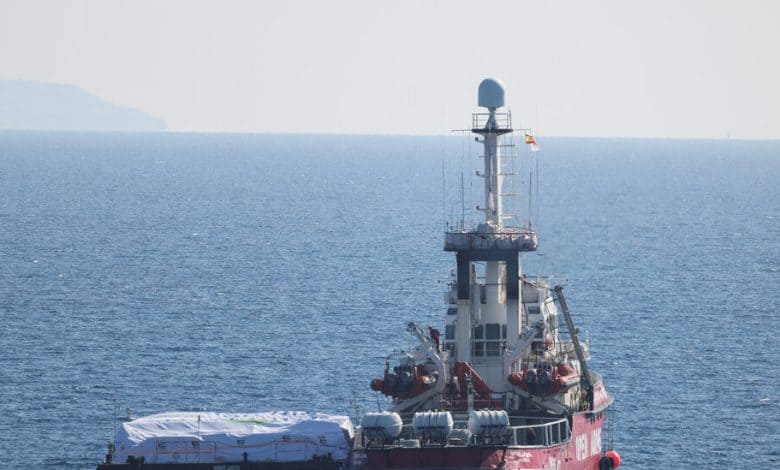First Ship Carrying Food Aid Arrives in Gaza

A humanitarian aid ship arrived on Friday in Gaza for the first time since the start of the war, a first step in a fledgling maritime operation to bring more aid to hungry Palestinians as aid groups say that Israel is restricting more efficient deliveries by road.
The ship, the Open Arms, carried some 200 metric tons of rice, flour, lentils, and canned tuna, beef and chicken, supplied by the World Central Kitchen charity, across the Mediterranean from Cyprus. It is the first vessel authorized to deliver aid to Gaza since 2005, according to Ursula von der Leyen, the president of the European Union’s executive arm, who has described the operation as a pilot project for a so-called maritime corridor for supplies to the territory.
Linda Roth, a spokeswoman for World Central Kitchen, said that the Open Arms had docked at a newly built jetty on the Gaza coast and that workers were beginning to move the food onto land. It remained unclear how the food would be distributed to Palestinian civilians.
The food on the ships is desperately needed in Gaza, where officials say around two dozen children have already died from malnutrition, and hundreds of thousands of others are “one step away from famine,” according to the United Nations. But delivering aid by sea is nowhere near as efficient as delivering it by land, and humanitarian groups have called on Israel for months to open more land crossings, ease restrictions on convoys and address their operational concerns.
“For aid delivery at scale there is no meaningful substitute to the many land routes and entry points from Israel into Gaza,” two U.N. aid officials, Sigrid Kaag and Jorge Moreira da Silva, said in a statement this week. Still, they welcomed the opening of a maritime corridor, given how much more humanitarian assistance is needed in Gaza.
Israel, which tightened an already restrictive blockade on Gaza after the Hamas-led Oct. 7 attack, has said throughout the war that it is committed to allowing as much aid into Gaza as possible. It has blamed delays on U.N. staffing and logistics.
